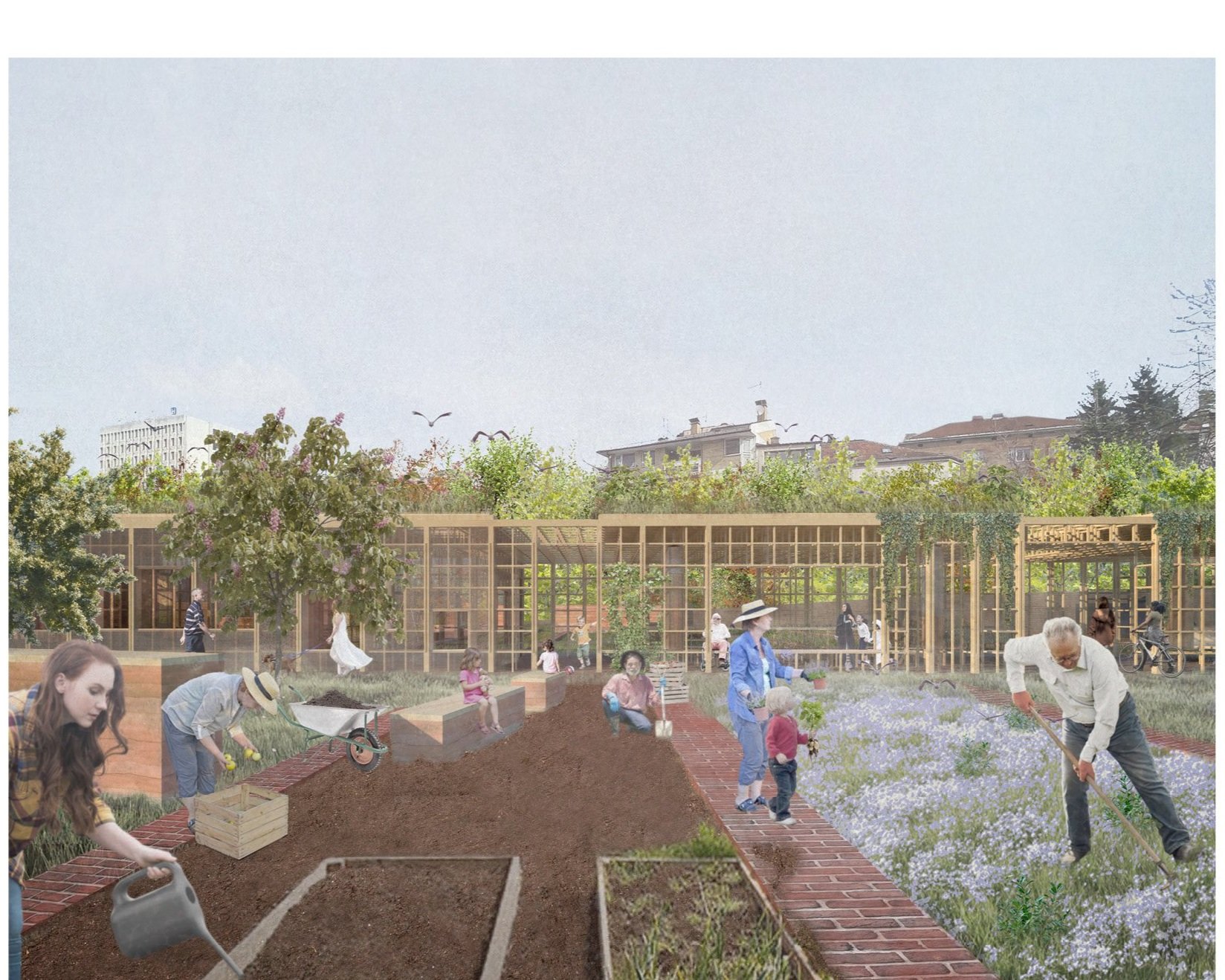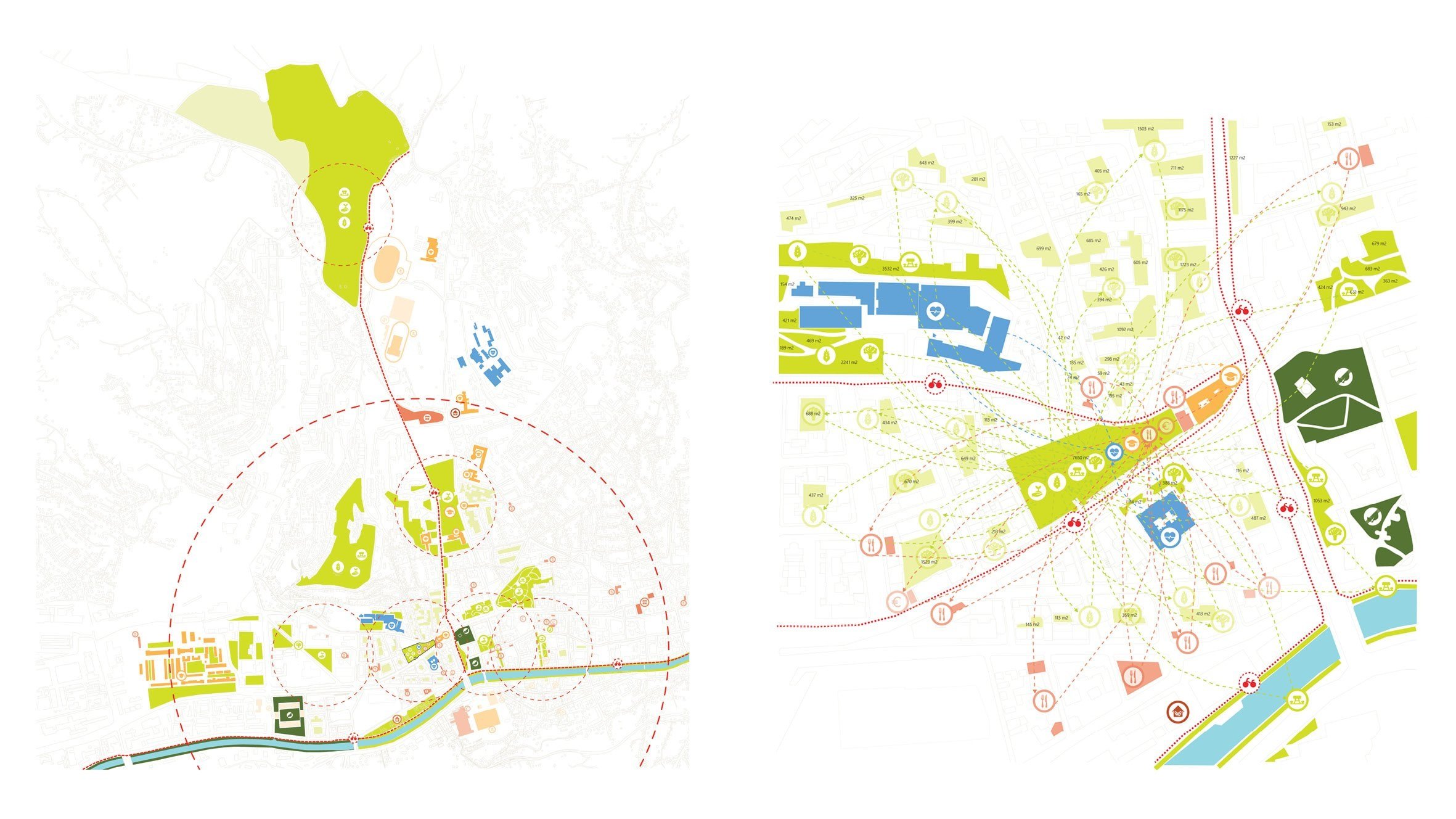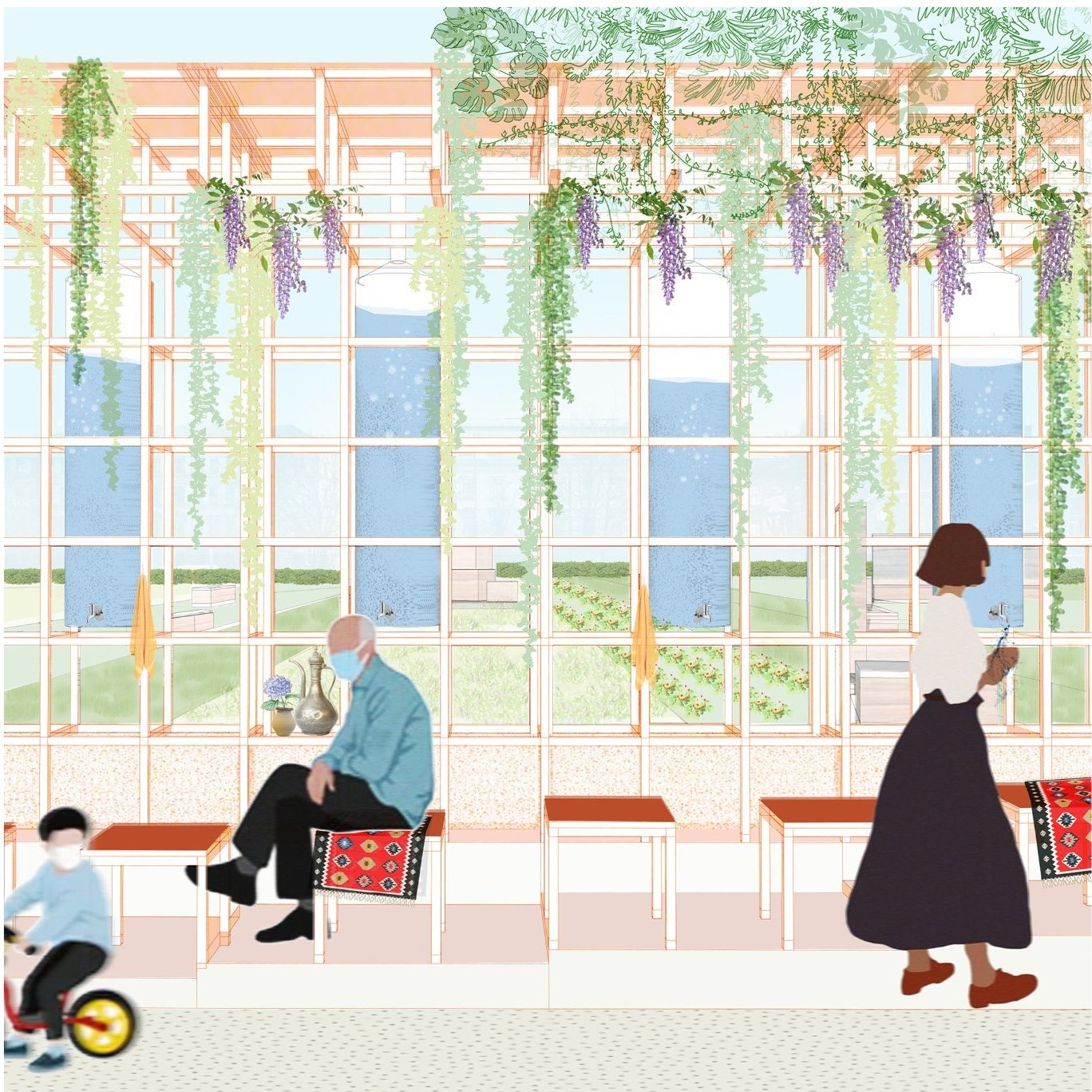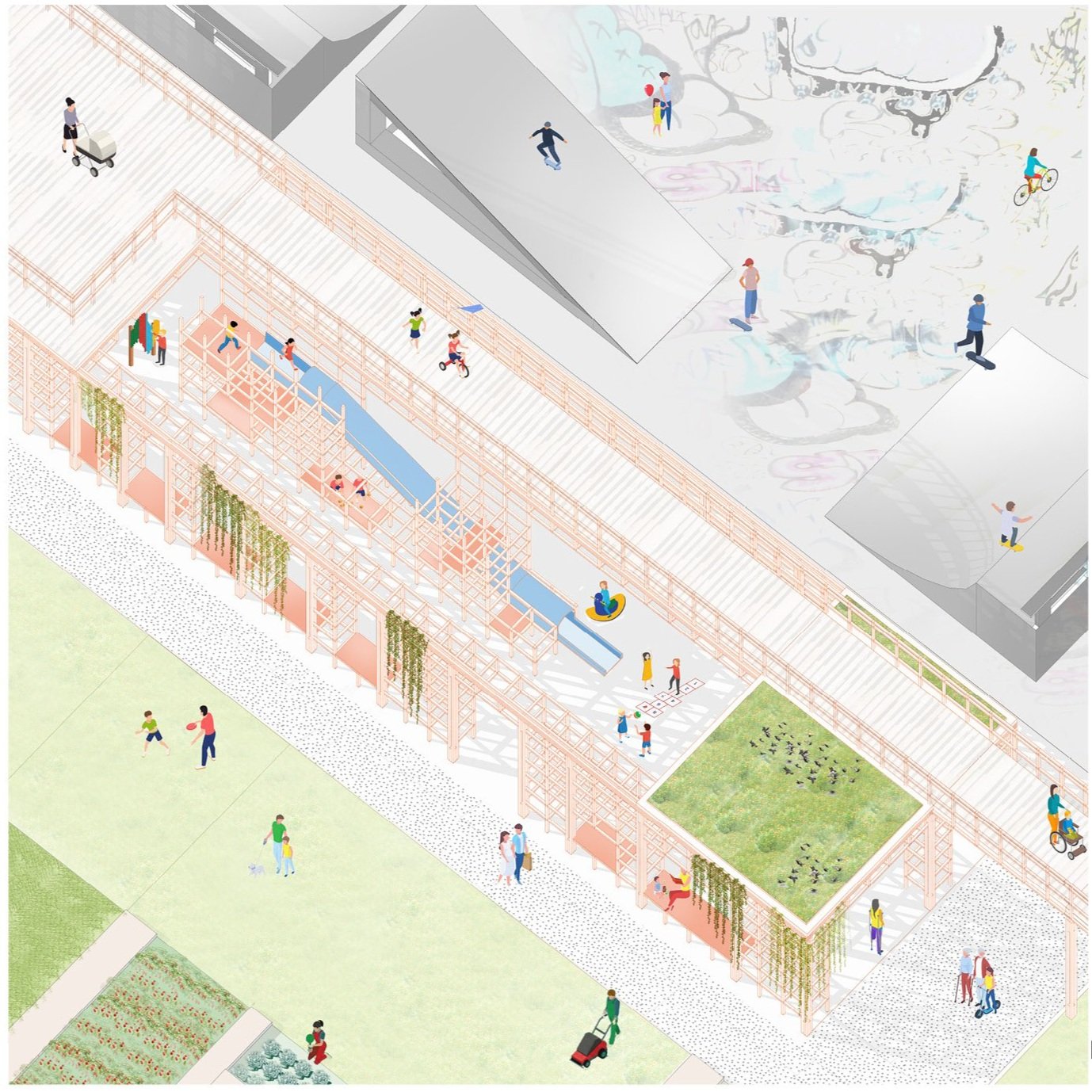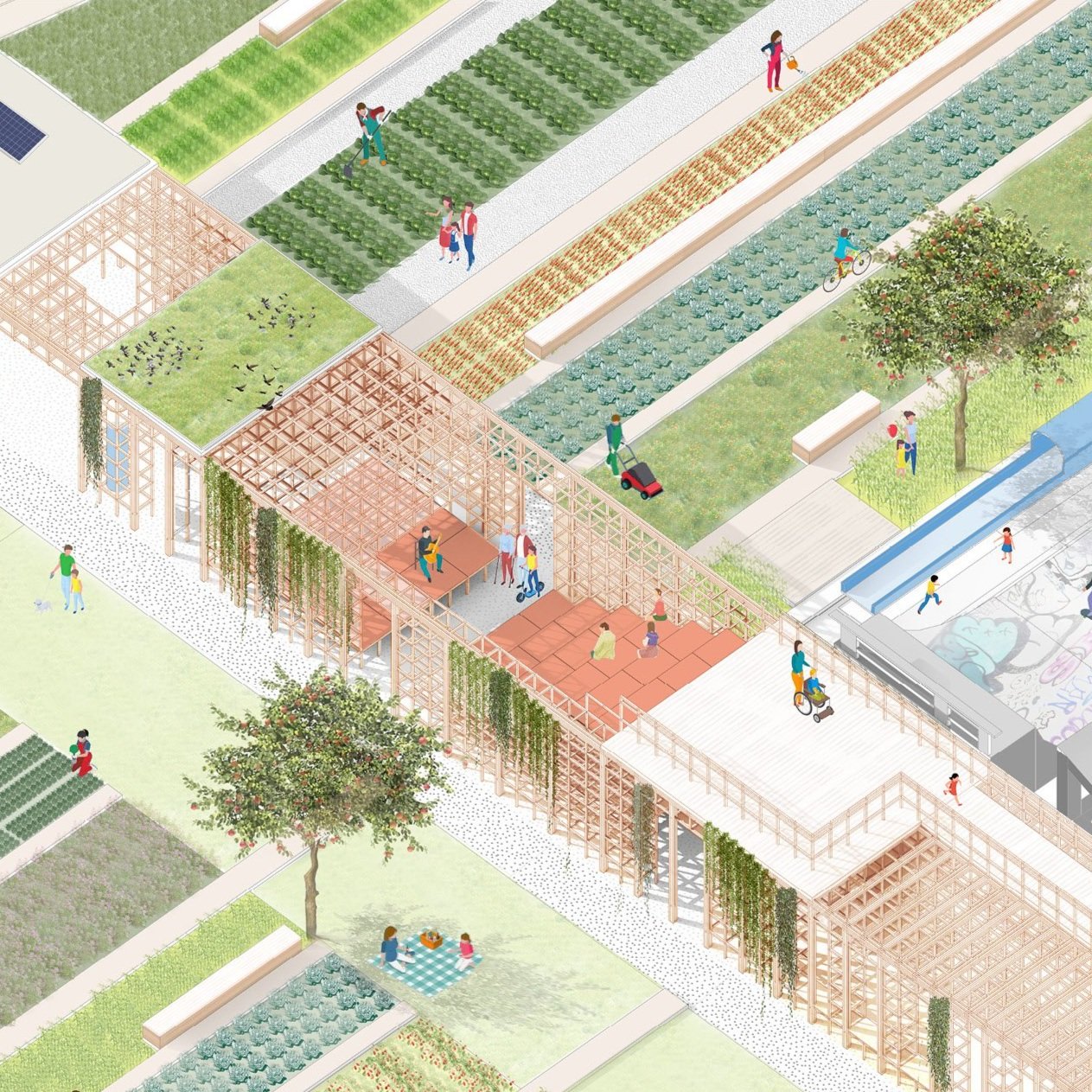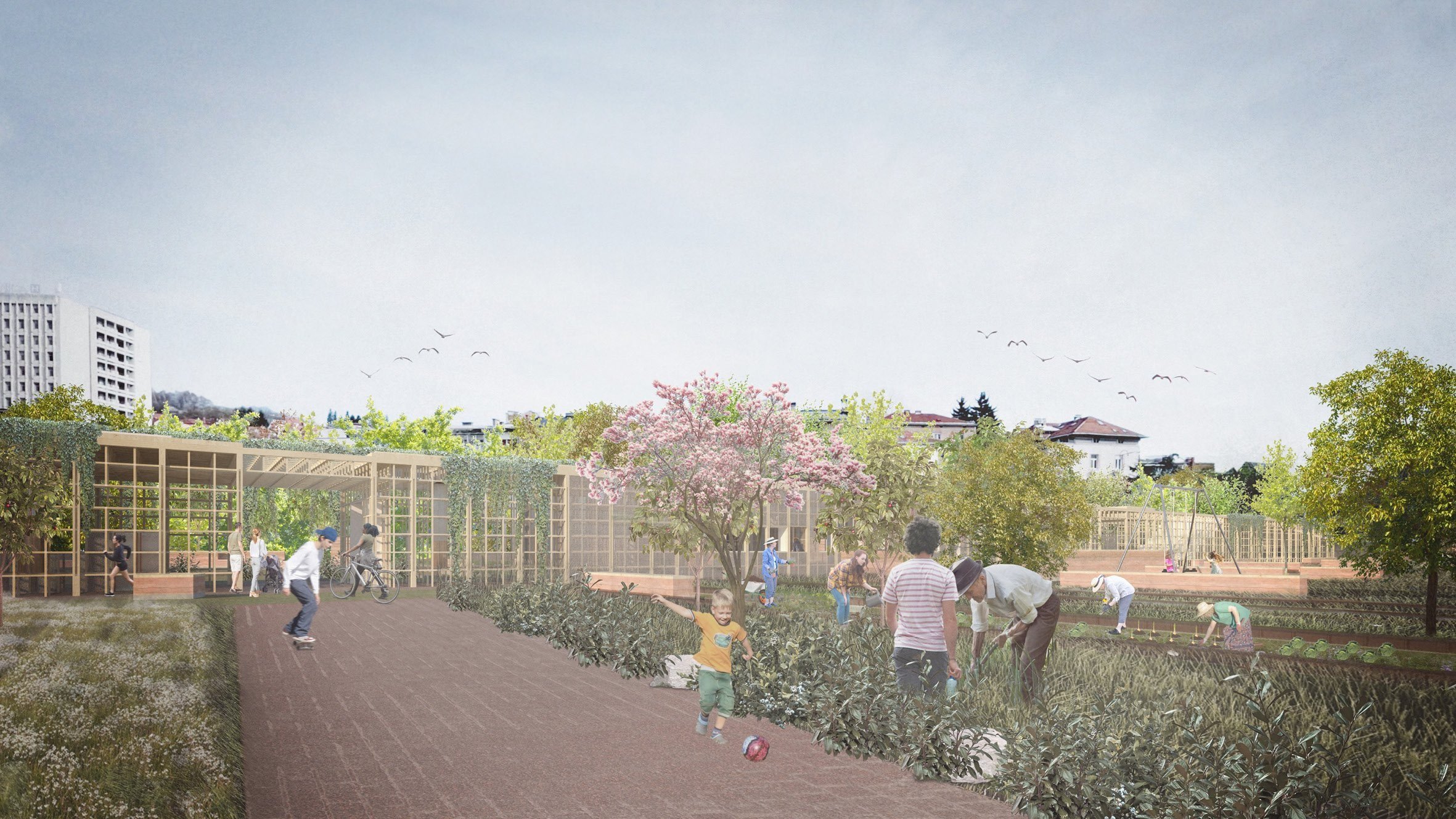Eco-Commons Hub ‘Hastahana Park’
Urban Eco-Commons Sarajevo;
Sarajevo and the world are in an urgent Eco Crisis - Ecological, Economic, Social and Well-being. We urgently need a more productive and resilient use of our Urban Commons!
Learning from the site’s history of recent political activism, pre-war healthcare and well-being and resilience as an urban farm during The Siege (1992-1995), this proposal is for “Hastahana Park” to become a catalyst and centre for Urban Eco-Commons Sarajevo - a sustainable strategy for improving the environmental, social, economic resilience and well-being of communities across Municipality Sarajevo Center and beyond. This urban strategy centres around a new type of community-led Urban Ecological Resilience Initiative, which aims to transform several sites in Municipality Sarajevo Center into resilient Urban Eco-Commons Hubs with multiple public environmental, social, economic and well-being programs and spaces that create a self-sustaining Urban Commons for Sarajevans in Municipality Center, which can become model for carbon-neutral sustainable city living to be replicated and improve resilience in other municipalities in Sarajevo and Bosnia & Herzegovina in the future.
Eco-Commons Hubs sites include: Hastahana Park, Radiceva Street, Musala Street, Amerikanac, Franza Lehara, Park Kemal Montena and Safet Isovic, Park Crni Vrh and Park Betanija. Each Eco-Hub has a focus on one of four key strategies for urban resilience, which include: Urban Eco-Farming Parks, Cultural Parks, Eco-Build Workshops for materials recycling and Eco-Housing. These hubs are based on a 3-5 minute walking zone distance, reducing the necessity for vehicles in the town centre, thus reducing carbon emissions and improving health and well-being in an over polluted city. This works towards transforming Sarajevo towards a “15-Minute City”-like model while also capitalising on and ‘unearthing’ the historic use of this part of the city for agriculture and green space. In this new urban model, Eco-Commons Hubs allow residents to access their daily needs (food, health, education, culture, leisure housing, work) within a short walk or bike ride
Eco-Commons Hub 'Hastahana Park'
Eco-Commons Hub “Hastahana” learns from its legacy of creative resilience during The Siege to become a new center for Ecological Resilience for the municipality Center and the city of Sarajevo, and a prototypical model for carbon neutrality to be transferred beyond. A new ‘urban commons’ for Ecological, Social, Economic resilience and well-being through different types of production. The sites programmatic focus is on urban agriculture, education, well-being, circular economies, while it also provides space for play, cultural and leisure activities. Eco Hub “Hastahana” is an off-grid park model, which is self-sustainable. This includes: on-site solar energy, rainwater collection, food recycling and biomass heating. While the park structures are made using recycled materials such as timber and rammed earth. Eco-Hub “Hastahana” links to the history of the site as a healthcare facility by reinventing the approach to ‘well-being’ to create a space that encourages a more holistic approach to the culture of physical and mental well-being for the community, but also the well-being of soil, plants and other species. Eco-Hub Hastahana encourages active ageing programmes, in an ageing municipality and country, while providing new opportunities for young people to learn, work and socialise. Food growing Eco-Commons Hubs link to surrounding public gardens and private gardens and courtyards, encouraging a circular economy for residents to share food produce from their gardens. These Eco-Hubs and their neighbouring green community sites can feed people from their nearby communities and visitors. In order to feed the city, these Urban Eco-Hub sites also link to rural farms to surrounding Sarajevo to trade and share knowledge and capacity at a larger scale.
TYPE \ Architecture, Competition YEAR \ 2022 LOCATION \ Sarajevo, Bosnia and Herzegovina STATUS \ Awarded - Honorable Mention COLLABORATORS \ Melika Konjicanin ORGANISERS\ Urbanlab.ba

